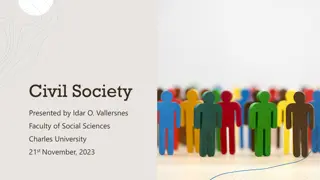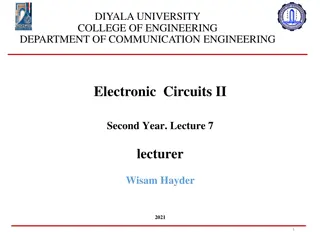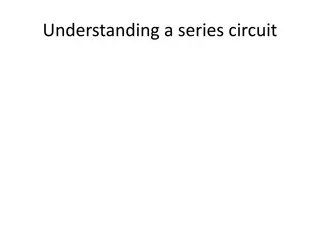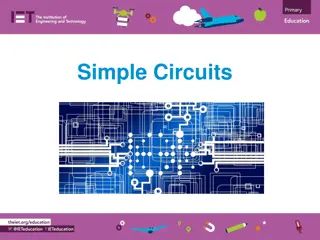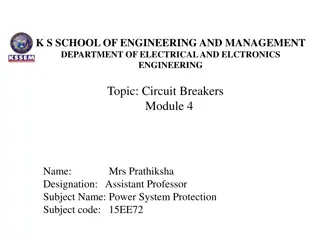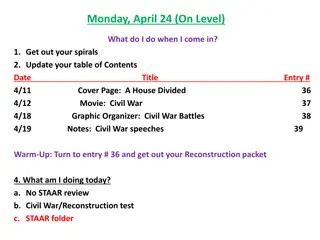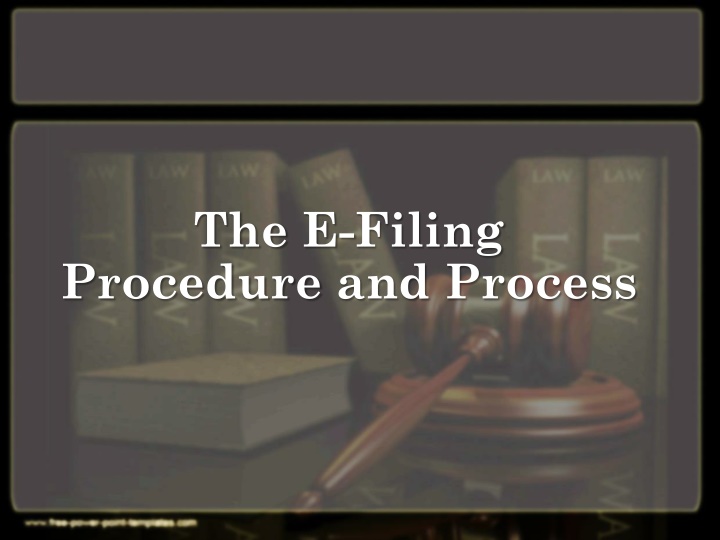
E-Filing Procedure and Document Format Guidelines
Explore the comprehensive e-filing procedure, document format requirements, and tips for successful submissions. Learn about the accepted file formats, email designations, form modifications, and more to ensure a seamless e-filing experience.
Download Presentation

Please find below an Image/Link to download the presentation.
The content on the website is provided AS IS for your information and personal use only. It may not be sold, licensed, or shared on other websites without obtaining consent from the author. If you encounter any issues during the download, it is possible that the publisher has removed the file from their server.
You are allowed to download the files provided on this website for personal or commercial use, subject to the condition that they are used lawfully. All files are the property of their respective owners.
The content on the website is provided AS IS for your information and personal use only. It may not be sold, licensed, or shared on other websites without obtaining consent from the author.
E N D
Presentation Transcript
The E-Filing Procedure and Process
Points of Interest Document Format Form/Template Modifications Pro Se s and Unrepresented Interested Parties Designation of Email vs. No Designation of Email Form Retention E Doc Submission Types of Nomenclature What happens if done wrong? What should my email look like? What should I be getting if done correctly? Tips and Exceptions
Document Format Formats accepted: -Word 97-2002 document (.doc) -Word 2003-present document (.docx) *Please note no other document format is acceptable at this time (e.g., PDFs, RTF s, WPD s, etc) are not acceptable and must be converted by attorney to word docs before sending to JA/Judge
Form/Template Modifications What it looked like before Notice the done and ordered date Notice the signature line Note the cc: or service list area
Form/Template Modification What it should look like now: No Done and Ordered paragraph No signature line No cc: or Service List Area
WHAT FORM WILL LOOK LIKE ONCE DONE
PRO SES AND UNREPRESENTED INTERESTED PARTIES Designation of Emails Court strongly recommends that you encourage all parties who must be served to provide their email for the portal to serve them. Not mandatory for any party www.flcourts.org for instructions on how to register their email
PRO SES AND UNREPRESENTED INTERESTED PARTIES Non-Designation of Emails No email designation? Court will print copies and mail. Attorneys who submit the proposed order must furnish stamped envelopes. Reference line should include Envelopes Submitted (Ex: 17456CP Estate of John Doe (Envelopes Submitted) JA will manually add the party to the service list on the proposed order.
Form Retention Save your forms locally and keep previous format In the event that there are any computer issues, the previous format will be used
E-Doc Submission Cha-circuitcivil@ca.cjis20.org Each order sent as separate attachment One email per case Be sure that document is Word format, and stripped. No more than (4) orders per email
What happens if done wrong? What happens if done wrong? EMAILS sent to wrong address Order may be delayed Order may be missed completely
What happens if done wrong? Document not modified (i.e. stripped ) Will be rejected Wrong document format sent Will be rejected
Tips and Exceptions Body of Email now constitutes your cover letter CC (carbon copy) opposing counsel on submission email
End Questions?

![❤[PDF]⚡ Civil War Talks: Further Reminiscences of George S. Bernard and His Fel](/thumb/20551/pdf-civil-war-talks-further-reminiscences-of-george-s-bernard-and-his-fel.jpg)


